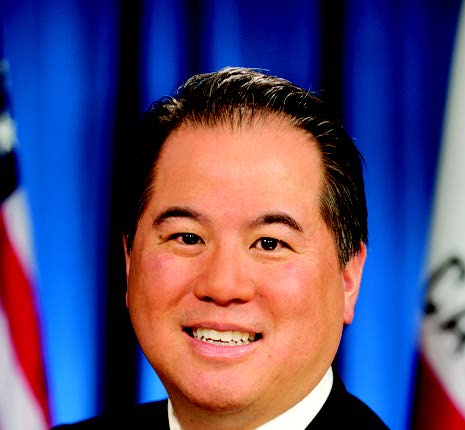 The idea that someone can be fired for exercising his or her personal freedoms—especially those we have fought for, like same sex marriage—is unthinkable.
The idea that someone can be fired for exercising his or her personal freedoms—especially those we have fought for, like same sex marriage—is unthinkable.
This is why many, including me, have spoken out against a morality clause that the Archdiocese of San Francisco has sought to impose on teachers employed at four local Catholic high schools. If adopted as part of a contract reclassifying all teachers as ministers of the church, teachers could be forced to choose between their jobs and their rights.
Having educated generations of local leaders, Sacred Heart Cathedral Preparatory and Archbishop Riordan in San Francisco, Junipero Serra in San Mateo, and Marin Catholic in Kentfield have deep roots in our communities. Fearing for the future of these schools, concerned parents and students have rallied behind their teachers with a simple and powerful message: teach acceptance.
Unfortunately, the law is not equally simple and clear regarding the rights of workers at religious employers because churches have a Constitutional right to profess their beliefs free from government interference. In order to build an understanding of these issues, at my request, the Assembly Judiciary Committee held a public hearing in San Francisco last month.
A committee analysis crafted for the hearing reached three key conclusions.
First, a unanimous United States Supreme Court decision places civil rights and religious freedom as competing values. The 2012 ruling affirmed that “ministers” employed by religious organizations are not protected by anti-discrimination laws intending to protect workers. However, the justices declined to state what a minister is for purposes of applying the so-called “ministerial exception.”
Second, lower courts have developed a number of questions to determine who is a minister. Does the employee primarily teach religious subjects? Does the position require religious training? Is the teacher ordained or commissioned? Does the teacher present him or herself as a minister? In applying this test to teachers, leading prayers or attending religious services with students is usually not enough for a court to conclude that a teacher is a minister.
Third, teachers at religious schools have fewer workplace protections than public school teachers. This is because the state cannot eliminate, as a condition of employment, workers’ civil rights like the freedom to choose whom to love and marry or how to plan a family, as has been attempted by the Archdiocese of San Francisco.
I was impressed by the students, parents, and teachers who attended the hearing to share the impact of these legal abstractions on their lives. One recurring concern was how the proposed morality clause would make LGBT students feel unwelcome at these schools and uncomfortable coming out to their teachers for guidance and support. I encourage you to watch the hearing footage on my website at www.assembly.ca.gov/ting
Looking ahead, there are no simple solutions, but I am committed to finding them. We must strike a balance between all of our freedoms, or risk losing the entirety of rights that enrich and shape our lives.
In the meantime, one question remains: is a teacher a minister if the religious employer seeks to impose that status regardless of employment duties and qualifications? Probably not. But only a court can authoritatively answer this question. Here lies the crux of the controversy with the Archdiocese that, as I write this column, has yet to finalize a contract with its teachers as schools open this month.
I join with the community in hoping an amicable solution can be found. Failing that, it may take a court to settle this once and for all—not just for local teachers, but for teachers everywhere.
Phil Ting represents the 19th Assembly District, which includes the Westside of San Francisco as well as the cities of Broadmoor, Colma and Daly City.
Recent Comments